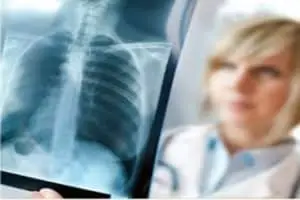
Working as a radiologic technologist in an outpatient clinic offers stability, predictable hours, and a tech-forward workflow. Here’s what the job looks like in 2025.
Morning Routine for Outpatient Clinic Radiologic Technologists
The day of a radiologic technologist in an outpatient clinic begins with a structured routine designed to ensure smooth operations. Clinics typically follow a more predictable schedule than hospitals, allowing technologists to plan their days efficiently.
6:30–7:30 AM: Arrival and Preparation
- Arrive early to perform equipment warm-ups and quality control tests
- Attend morning huddles to discuss the day’s special considerations
- Review schedules to anticipate procedure complexity
- Ensure compliance with automated QC tools now standard in 2025
7:30–8:00 AM: Final Setup
- Stock supplies like gowns and markers
- Check for PACS alerts or system lags
- Confirm interconnectivity between RIS, PACS, and EHR systems
- Prep contrast or specialty equipment if needed
Patient Care Excellence
By 2025, outpatient clinics have become the dominant setting for diagnostic imaging, favored by patients for convenience and insurers for cost. This means technologists often see a new patient every 5–10 minutes.
To ensure a great experience, follow this sequence:
- Verify identity with two identifiers
- Conduct a brief clinical assessment
- Clearly explain the procedure and expectations
- Image with precision and attention to comfort
- Provide clear post-exam instructions
Communication is key—avoid jargon, use visual aids, and stay sensitive to cultural and language barriers.
Modern Imaging Workflows
Patient Verification Protocols
- ID scanning and dual verification for sensitive studies
- Automated alerts for duplicate orders or contraindications
Preparation and Execution
- Remove metal and clothing that interfere with imaging
- Explain positioning and breathing clearly
- Utilize digital technique charts and preset exposure settings
- Apply ALARA principles — now updated post-2023 shielding guidance
2025 Update: Refer to our article on updated shielding practices.
Digital Integration Challenges
Today’s outpatient clinics rely on seamless communication between RIS, PACS, EHR, and even AI platforms. Technologists must know how to navigate each system and troubleshoot on the fly.
CD uploads remain a challenge. Many clinics now assign clerical support to handle this, saving technologist productivity.
AI Tools in 2025
- Flag suspicious findings
- Recommend exposure adjustments
- Enhance image quality automatically
- Monitor radiation dose in real-time
Expanded Responsibilities
In smaller clinics, radiologic technologists often wear multiple hats:
Clinical Tasks
- Vital signs and basic testing
- Phlebotomy (if certified)
- Room turnover and minor assistance
Admin Duties
- Scheduling, verification, and billing support
- Supply ordering and maintenance checks
Work-Life Balance Benefits
Outpatient schedules offer stability rarely found in hospital imaging:
- No overnight shifts
- Holidays and weekends often off
- Steady 8–5 schedules
- Opportunities for part-time or flex work
A 2024 survey showed 63% of techs preferred outpatient settings primarily for quality-of-life reasons.
Career Growth
Leadership
- Lead tech
- Supervisor
- Clinical educator
Certifications
Side Paths
- PACS Administrator
- Vendor applications rep
- Consultant
Technology Updates for 2025
- Single-exposure dual-energy DR
- Wireless detector upgrades with faster cycle time
- Voice-activated consoles
- Apps for positioning, dose tracking, and AI overlays
Radiologic Technologist Salary Expectations
Average (U.S.): $72,500
With 5+ years experience: $80,000–$88,000
With modality certification: +$5K–$8K
Supervisor role: +$7K–$20K
More detailed salary data available in our salary breakdown.
Resources for Success
- Rad Tech Survival Guide (PDF)
- Board Exam Study Tips
- Technique Charts Explained
- 2023 Shielding Protocols
Join Our Radiology Community!
Visual Enhancements

About the Author: Ron Jones is a registered radiologic technologist and educator with over 20 years of experience. He created this blog to share honest, practical insights with future and practicing technologists.
Last updated: May 2025

